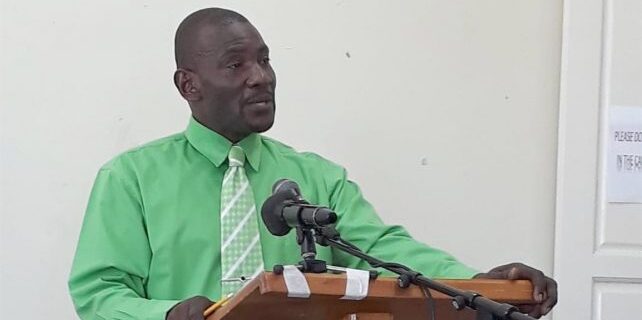By Admin
Copyright dominicanewsonline

Chief Education Officer, Dr. Jeffrey Blaize has announced that civics education will be introduced to primary schools in Dominica this month.
He said during a statement that civics education will form part of education reform.
“Civics education is an important element for us, and for that matter, we have developed the module for civics,” he said. “Just in the last few weeks we work on the scope and sequence for our civics module, and we are going to be sensitizing our teachers on delivering the civics curriculum, because we expect our schools to fully implement the civics curriculum from September of this year.”
According to him, there are many skills to consider, ranging from ICT, physical education, agriculture, modern foreign languages, and local language to a certain extent.
This, Dr. Blaize said, includes: ‘Kokoy’, Creole, and Kalinago language in order to give students exposure to these elements of the culture.
“Also, the development of school clubs, because we felt that that was an important element for student socialization. Bearing in mind that many parents indicated the challenges at schools with bullying and as well as visual performing arts,” he explained.
He continued, “We know the gains to be made from visual performing arts in the job market. We felt that it would be important to orient our students towards that.”
Meanwhile, Dr. Blaize said community service is an important area for the Ministry of Education as well, “ because we feel that that is one of the areas that’s dying out within our communities.”
“Persons don’t understand the importance of volunteerism, and we want our students to be sensitized on that area so that they grow into adults that are willing to assist with the development of their country,” he noted.
A release from the Office of the Prime Minister (OPM) stated that Prime Minister Roosevelt Skerrit indicated at a press conference on Monday, May 26, that there are plans for an overhaul as it relates to the current education structure in Dominica.
During the press conference, he criticized the existing educational structure, particularly citing the curriculum for primary school students, which he described as “ridiculous” for its breadth of up to 13 subjects. He proposed a more streamlined curriculum focused on core subjects such as English, Mathematics, Social Studies, History, and Social Science. Additionally, he emphasized the importance of practical life skills, including agriculture, carpentry, art, and civics.
In his remarks, Skerrit highlighted the shortcomings of the current system, stating, “We’re not building a culture of collaboration. We’re not building a culture of cooperation. We’re not building students with analytical skills and critical thinking, and comprehension.” He stressed the need for an educational approach that recognizes the diverse learning styles, talents, and intelligences of students.
The statement also said that the Prime Minister underscored the importance of extracurricular activities, such as music and sports, as avenues for fostering teamwork and collaboration among children. He warned against allowing another school year to pass in what he described as “depressing situations” for students, warning that failure to reform the system could result in the loss of an entire generation.
According to Skerrit, the education system must adapt to contemporary realities, including technological advancements and the rise of artificial intelligence, to better prepare students for the future.



